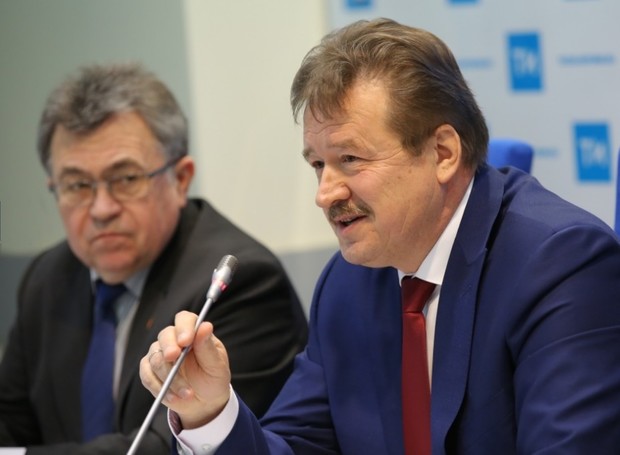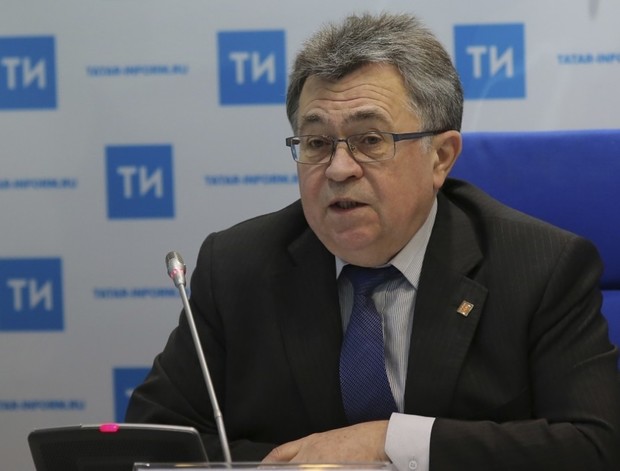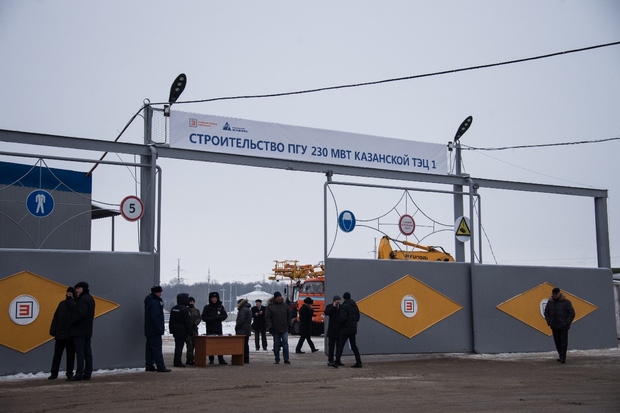How KAMAZ ensures security: top executives resign instead of taking polygraph
Large enterprises of Tatarstan tell about the anti-corruption measures and how they asked Dmitry Medvedev to save them from small businesses
As it turned out, one of the newest optional but 'recommended' methods to detect and prevent corruption in major companies is the polygraph. In particular, KAMAZ and Generating Company have started to conduct it. Besides, as the correspondent of Realnoe Vremya found out, the largest Tatarstan state power supplier asked Prime Minister of Russia Dmitry Medvedev to free them from the need to attract small businesses as suppliers to large constructions.
KAMAZ has a polygraph
On 30 November, at a press conference in IA Tatar-Inform they told about how the large industrial enterprises of the Republic are trying to minimize their corruption risks. Prior to that, the head of the organizational department of the Tatarstan presidential administration for anti-corruption policy Aleksey Pankratov reminded that on 9 December we celebrate International Day of Fight Against Corruption and we should not perceive it as a feast: 'You like it or not but we have that day. It is not a feast, it is the day when we remember that corruption is a negative phenomenon for the global system, and that all progressive countries of the world signed an agreement to counteract this phenomenon.'
Director of the department for protection of resources of KAMAZ JSC Nikolay Lipatov was first to tell about how the company counteracts corruption. He noted that their security service includes several department, including information security service, because the company has repeatedly been subjected to cyber attacks: 'They have tried several times to hack the server of KAMAZ, to penetrate, to withdraw money — all that we had.'
As for the work of the employees of the company, Lipatov told about known to him attempts of the workers to take under the clothes non-ferrous metals to sell them. But the most dangerous for the economy are still not the tricks of the staff workers but the actions of senior management. Therefore, a candidate for a leadership position is checked by the security forces to identify potential risks of corruption, conflict of interests.

Besides, from 2015 the employees take polygraphs: last year, 77 out of 316 employees were tested, and this year – 66 out of 216. Only employees at certain positions fall into the category to be tested — potentially the most corrupted. We are talking about staff who deal with tenders, sales.
'Unfortunately, I will tell you that the high-ranking executives, who wrote a letter of resignation and did not take the polygraph, because in addition to general questions there are specific ones: do you receive kickbacks, do frauds with tenders, do you promote your company?' said Lipatov.
However, answering the question of Realnoe Vremya, the speaker declined to give not only the names of the employees who thus left their posts but even their positions. He also did not give accurate data on people who failed the test.
Fraud with KAMAZ resulted in four years of strict regimen
Speaking about the joint work with law enforcement agencies, Lipatov also reminded about the recent case of the Toropin PLC, which won a tender of the Defense Ministry at 24 million rubles for supply of new spare parts of KAMAZ JSC, offering the price by 40% below than the official dealer.
'Naturally, we became interested, we began to write letters to military units in order they gave us information. We asked to write a letter to our Director General to confirm that this PLC is irrelevant to our enterprise — of course, in order to document officially that this company is not a dealer. We collected the material and sent to FSB,' commented the director for resource protection department of KAMAZ JSC.

In the result it was found out that one-fifth of the products were purchased not from the official dealers but from Chinese and domestic illicit producers, they just put labels of JSC on the spares. Consequently, 30-year-old ex-director of the company and its co-founder Ivan Toropin were sentenced to four years of colony of strict regimen. He was found guilty of the embezzlement of budget funds, illegal use of trademark of KAMAZ JSC and a bribe at 1,2 million rubles to the head of a warehouse of the military unit.
The polygraph is optional but 'recommended'
Deputy Director General of Generating Company JSC for general issues Anatoly Krasnov said that the company has the special department for the security monitoring — the Department of economic security and regime. There are 12 employees — all are officers, former workers of the ministry of internal affairs and of the federal security service.
As it turned out, the top managers of Generating Company also took polygraphs. Krasnov noted that they did it on their own initiative – the procedure was optional but recommended. The assessment of the top managers was conducted by the staff themselves and was not always pleasant.
Special attention is given to the procurements — by the way, their volume is 22 billion rubles a year. From 2015, all purchases have been made via three electronic platforms — B2B, SUE Agency for state order, investment activity and interregional relations of the Republic of Tatarstan and Onlinecontract.
'What are the results of our work? Every person not only when hiring, but also when moving from one position to another necessarily takes the polygraph in the service of economic security and regime. 864 people have been tested in the first 9 months of the year. 31 people out of them received the refusals for the job,' said Krasnov.

The problem with small businesses
Speaking of security, he raised another interesting issue associated with public procurements. According to Krasnov, small companies that put the lowest price and win the tender not always can handle at the appropriate level. In particular, we are talking about services of installation, repair, maintenance, installation of security systems, fire alarm systems.
'Imagine a CHP. It is secured with guards, arms, alarm system. And suddenly, while mounting a camera, they did something, and it transmitted information. And what now, to monitor everyone? It's the security after all,' commented the speaker to Realnoe Vremya after the press conference.
He remembered that in the entire history of Tatenergo in Zainsk there was a case when a blade (of a steam turbine) flew off, broke all the concrete structure and fell far. To avoid such incidents now, we have to check small companies that win the tender several times.
Besides, as it turned out, at Generating Company JSC there are difficulties with the implementation of the law FZ-223, according to which at least 10% of public procurement they have to give to the small and medium businesses.

'How to make a 10% proportion in total share? This year we have won such purchase for construction of CCGT at CHP-1. And it is a single lot — 6,3 billion rubles! Of course, it was won not by a small business. It was won by a large company — Uralenergostroy,' said the interlocutor of our newspaper. 'It only remains for the small businesses in this caseto supply small items like gloves and forms, but due to this a company cannot have 10%. We wrote a letter to Medvedev, he wrote to Dvorkovich and our minister Novak. He and the other received it. I follow this.'
Now Generating Company JSC expects an exemption in the law on the construction of large objects from the Russian government.